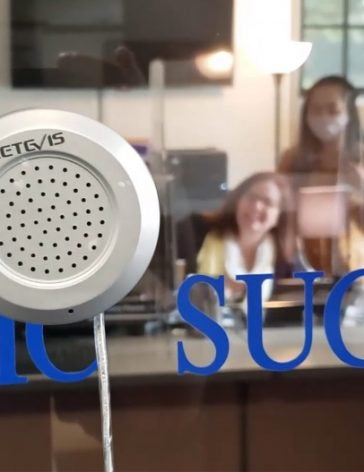A Spotlight on Academic Advising
The academic advising team describes advising as one to one teaching. We know that in order to build strong relationships with students, we need to provide them with a sense of connection and belonging, connection with us, connection to their majors, and a connection to the University. We also must listen with a discerning ear and provide students with the knowledge and guidance they need to graduate in four years.
The Academic Advising Team is faced with a unique challenge this semester. How do we successfully connect with our students remotely? How do we give them a sense of belonging and connect them to each other during a national pandemic, when they are completing many of their classes from their residence halls or unexpectedly from home?
 When students enter Roosevelt Hall, the home of Fannon Institute for Student Success, they are greeted by signs about URI’s Covid-19 policy and procedures, and a microphone at the door telling them to talk to the reception team through a glass window, for their safety. What you might be surprised to know is that they are also greeted by a giant bowl of candy with individually wrapped chocolate bars, hand sanitizer and campus maps. The front desk team offers a warm welcome before students have time to read the signs. They answer advising questions and have made it their business to know many of the other building’s policies around campus to assist students who are lost, need referral information or just a smile.
When students enter Roosevelt Hall, the home of Fannon Institute for Student Success, they are greeted by signs about URI’s Covid-19 policy and procedures, and a microphone at the door telling them to talk to the reception team through a glass window, for their safety. What you might be surprised to know is that they are also greeted by a giant bowl of candy with individually wrapped chocolate bars, hand sanitizer and campus maps. The front desk team offers a warm welcome before students have time to read the signs. They answer advising questions and have made it their business to know many of the other building’s policies around campus to assist students who are lost, need referral information or just a smile.
All first-year students share a small seminar course that introduces them to all things URI – from our academic general education program to all the resources available on campus, from major specific career information to personality testing and major matching. Because this course is predominantly online this semester, instructors have created unique ways to connect with their students and to connect them to each other. Some examples include, an in-person class on the quad with Allies Donuts – using zoom to connect students who are completing classes from their homes in other states. One class has turned reflection assignments into pen palling with their instructor between classes. Other instructors send out weekly newsletters about important policy dates, campus happenings and major specific information. Another instructor shares her zoom host status so students can take turns hosting the class and sharing their screen photos, Students have zoom break out groups to discuss global issues and differing opinions. Students are assigned classmate accountability partners to talk with throughout the week; talking prompts range from, “what are your favorite classes” to “how are you managing your time?” Students have shared “who they are and aspire to be” through digital graphics and photos. Because many seminar classes also share some of the same academic classes, students also have formed study groups together. Learning looks different but make no mistake about it, learning is happening, and connections are being made all over campus and right from student’s rooms in their residence halls and in their rooms at home.
One student shared that her instructor took the time to re-create the first two classes she was forced to miss after her grandmother passed. During that same meeting, the instructor offered a book on grief that had helped her after losing a parent. An undeclared student described her instructor bringing her dog to their in-person class on the quad, after several students discussed missing their dogs.
Understanding the stress and anxiety that students faced at the beginning of the semester, the academic advising team created a two and a half week open advising period that allowed students to virtually drop- in for meetings. These meetings were very popular with students. During that time, advisors had 1,133 appointments where schedules were adjusted and readjusted to meet the ever-changing needs of students. During these meetings, many students shared their worries and concerns and received guidance and referrals from a team of flexible, caring professionals who are trying to bridge the connection gap Covid-19 has created. When I meet a student and they say they do not know where to go with a particular issue, my answer is always the same. “Start with your advisor! They are a fountain of academic information and referral resources. They will take really good care of you.” Having a relationship with your advisor will benefit you in more ways than you know. They will be your academic coach, cheerleader, and information, and referral source.
Advisors have had to reimagine many aspects of their jobs this semester, including moving their offices to their kitchen tables, taking extra time to master new technology in order to assist their students, holding ample space and empathy for their advisees accomplishments, disappointments and struggles in their new educational environment, finding the positive and compassionately pointing it out to their students every day. They have listened and responded to the stress in their student’s voices with concern and kindness, all while providing students with their professional knowledge and experience.
What particularly stands out to me in this time of uncertainty -is that every member of the advising team is working tirelessly to provide a unique safe place for students to feel a sense of connection and belonging during a time when they need it the most.

